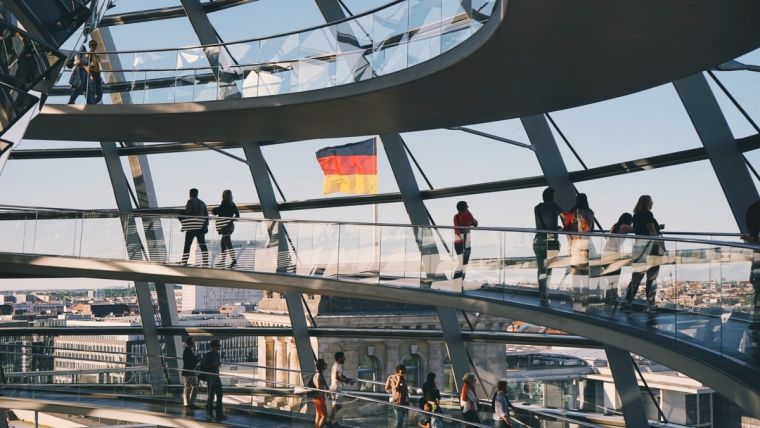Churches in Germany re-open without handshakes

Churches in Germany have been allowed to reopen this week, in keeping with the federal republic's easing of restrictions on gatherings amid the coronavirus pandemic.
Although many churches held in-person worship services on Sunday, they came with various restrictions on contact in light of concerns over spreading COVID-19. These measures included, according to the UK Independent, not allowing handshakes as well as singing, as it is believed that both may aid in spreading the virus.
Cologne Cathedral, a prominent church that before the pandemic averaged 20,000 visitors a day, held a small service limited to 122 attendees.
In addition to houses of worship, Chancellor Angela Merkel has approved the re-opening of museums, playgrounds and small businesses.
"We must work to make sure we bring the number of new infections down further," stated Merkel, as reported by the Independent.
"If the infection curve becomes steep again, we need to have a warning system to notice it early and be able to act."
In April, the Catholic Church in Germany announced that they expected a ban on in-person worship services to be lifted, albeit with certain social distancing requirements maintained.
Prelate Karl Juesten, a church lobbyist, said in comments reported on by German Catholic publication KNA International that certain contact restrictions would remain.
"In particular, rules must be made so that nobody can be infected by the singing," stated Juesten, as reported by KNA in April, adding that Communion would also be affected.
"It is crucial that the reception of communion remains dignified and at the same time takes into account the need to protect people from infection."
Germany is not the only country to begin easing restrictions on mass gatherings enacted in response to the spread of coronavirus with some added safety measures as a precaution.
Last month, Reuters reported that South Korea was allowing megachurches and professional sports venues to hold events, albeit while still respecting social distancing rules.
Onnuri Church in Seoul, for example, limited access to their 3,000-seat sanctuary to 700 attendees who preregistered and were given designated seating.
Some churches in the U.S. began to reopen as well, including Fellowship Church in Texas, which allowed only 25% of its sanctuary to be filled.
Other nations, however, have been more hesitant to lift such bans. Greece, for example, decided to maintain a ban on in-person services while allowing the easing of restrictions for other groups.
The Greek Orthodox Church objected, with spokesman Metropolitan of Nafpaktos Hierotheos sending a letter of complaint to the government.
"What do they really think the Church is?" stated Hierotheos, as reported by Voice of America. "Do they consider it like any other supermarket or union or nail and hair salon?"
Courtesy of The Christian Post.











